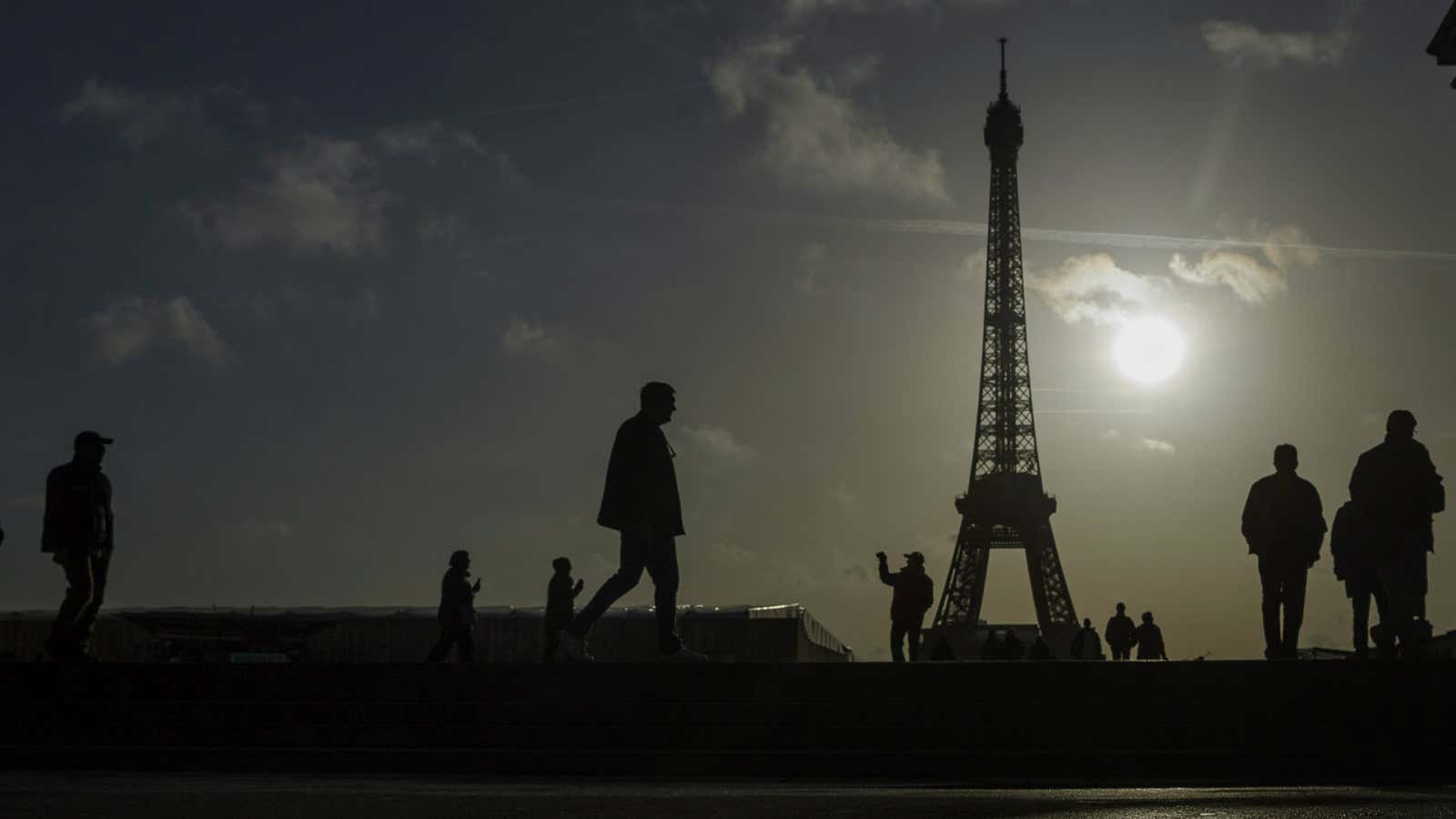Updated at 9:45am GMT
French authorities have started to name the attackers who terrorized Paris over the weekend and five have been identified as French nationals, indicating that radicalization of its own citizens is one the biggest threats to France’s security.
Seven of the people directly involved in the attacks have been killed, six of those when they blew themselves up. Of these, five have been identified conclusively. At least one other living suspect linked to the attacks has been arrested, and one remains on the run. Authorities believe as many as twenty people may have been involved in planning the attacks.
While some European officials have used the attacks as an opportunity to argue for increased border control and limits on the refugees that have flooded the continent from war-torn Middle Eastern countries, the fact that several of the Paris attackers were French demands a different strategy altogether, security experts say. France’s dozens of poor suburbs full of families from North African and Middle East backgrounds have become breeding grounds for terrorism, they warn.
“There is a jihadist subculture, a terrorist subculture that has been slowly and steadily growing” in French enclaves where these communities live, Rohan Gunaratna, the head of Singapore’s International Centre for Political Violence and Terrorism Research told Quartz.
The problem is happening because these communities are not integrated with the rest of France, he said, and they lack economic opportunity. “Unless France can reach out and promote moderation and coexistence, and make these French citizens French by building links with them, the threat will persist,” he said.
This what we know about the suspects so far.
Omar Ismael Mostefai: The 29-year old French national was the first attacker to be publicly identified by French authorities. Born and raised in the Parisian suburb of Courcourronnes, Mostafai was flagged as a potential security threat in 2010 and added to the government watch list, according to the BBC. Mostefai was identified by his finger, which was found among the rubble at the Bataclan concert hall where 89 people were killed.
French newspaper Le Monde reports that Mostefai may have taken a trip to Syria (link in French) within the past two years, and also passed through Turkey.
His father, and a brother who voluntarily turned himself in, are also in police custody, AFP reports.
Ibrahim Abdeslam: The 31-year old French national, also reported as Brahim, is one of two brothers who are suspects in the attacks. Ibrahim was the only person to die when he blew himself up at Le Comptoir Voltaire cafe, but 12 were injured.
Salah Abdeslam: Ibrahim’s 26-year old brother, also a French national, is the focus of an international manhunt. Authorities questioned him at the Belgium border hours after the attacks before letting him go. He reportedly rented a car in Brussels used in the attacks.
A third brother, Mohammed, remains in Brussels, where he is being questioned by police. His age and potential role in the attacks remain unclear.
Bilal Hadfi: One of the bombers responsible for the explosion at the Paris stadium where three people were killed. The 20-year old French national had traveled to the Middle East before coming to Belgium, the Washington Post reported.
Samy Amimour: Born in Paris in 1987, Samy was already known to authorities because of a previous terrorism case, French prosecutors said.
French investigators were also able to match the remains of one of the deceased bombers with a Syrian passport at the stadium also, and have just confirmed that his name is Amhad al Mohammad, as Greece publicly announced earlier. He is Syrian, not French.
France has one of the largest Muslim populations in Europe, and an estimated 1,450 French citizens have left the country to join the Islamic State terrorism group behind this past weekend’s attacks.
Follow Quartz’s coverage of the Paris attacks here.
